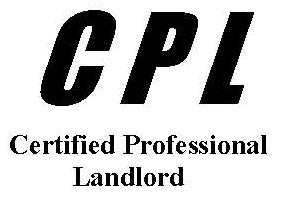A tough question. In this "great recession" , so many people are looking for answers right now. How can I succeed in a market like this? I for one don't have all the answers. But I have been fortunate enough to be in a position where I constantly get to watch and speak with real estate people from all walks of life. Many are struggling and trying to figure out how to turn their ship around. Many are seeing reasonable success and making a decent living. And a few are amassing a small fortune right now. Of the people I see that are succeeding, this is what I see them doing.
Foreclosures - but more specifically, properties that are being moved from a position of no equity to a position with equity. Anybody that bought a property between 2004 and 2007 is probably in a position where they have little to no equity. There is no money to be made on those properties except in the long-term UNLESS they are converted into properties that have equity in them.
 If the property is upside down and has no equity, you cannot do much with creative financing or lease option or subject to or anything like that. Some people are trying to get mortgage modifications, forensic loan audits, or do foreclosure defense to somehow keep their property and force the lender to back off. It is highly unlikely that this will succeed in stopping the lender from ultimately foreclosing, but it may drag the process out for a while. The only way to really get the negative equity eliminated is to get that mortgage lien removed from the property. And that means either short selling the property or letting the bank have it back to be re-sold as an R.E.O. (Real Estate Owned foreclosure).
If the property is upside down and has no equity, you cannot do much with creative financing or lease option or subject to or anything like that. Some people are trying to get mortgage modifications, forensic loan audits, or do foreclosure defense to somehow keep their property and force the lender to back off. It is highly unlikely that this will succeed in stopping the lender from ultimately foreclosing, but it may drag the process out for a while. The only way to really get the negative equity eliminated is to get that mortgage lien removed from the property. And that means either short selling the property or letting the bank have it back to be re-sold as an R.E.O. (Real Estate Owned foreclosure).
Short sales are resulting in plenty of sales and profits. In fact nearly 25% of all Orlando real estate closings during June 2010 were short sales. There are tricks to getting short sales approved. You need to develop good contacts, be VERY patient, and learn how to aggressively push deals through. Not all people in foreclosure will qualify for a short sale so screening out the bad ones is a must. If the seller does not have a true hardship, the seller is uncooperative, there is more than just a 1st and 2nd mortgage on the property, or the property is undesirable or difficult to re-sell, then you may want to pass and work on something more worthy of your time. Short sales are a volume business plain and simple. The more short sales you work on, the more that will result in a closing. If you are working on 3 short sales, you are miserable and frustrated. If you are working on 30 short sales, you are most likely having closings and making serious money.
If you are acting as an investor doing a short sale double closing, there are many brilliant local "gurus" that really know their stuff on these short sales. The main key to keep everything on the up and up is to (1) disclose to everyone involved that you are making a profit on the deal. It is not something to be embarrassed of. You don't have to disclose specific numbers necessarily, but the short selling lender and seller need to realize you may be re-selling the property for a profit and the buyer and their end lender need to know and be okay with this as well. (2) It should go without saying, but do not defraud or intentionally deceive any party to the transaction. This includes any of the paperwork being sent to any of the lenders. It also includes being legitimate and truthful with the appraisers and B.P.O. agents (Broker Price Opinion). If you stick with those 2 guidelines it should eliminate 95% of the trouble you can get into on a short sale double closing.
To be continued in Part 2, so stay tuned.







Comments(0)